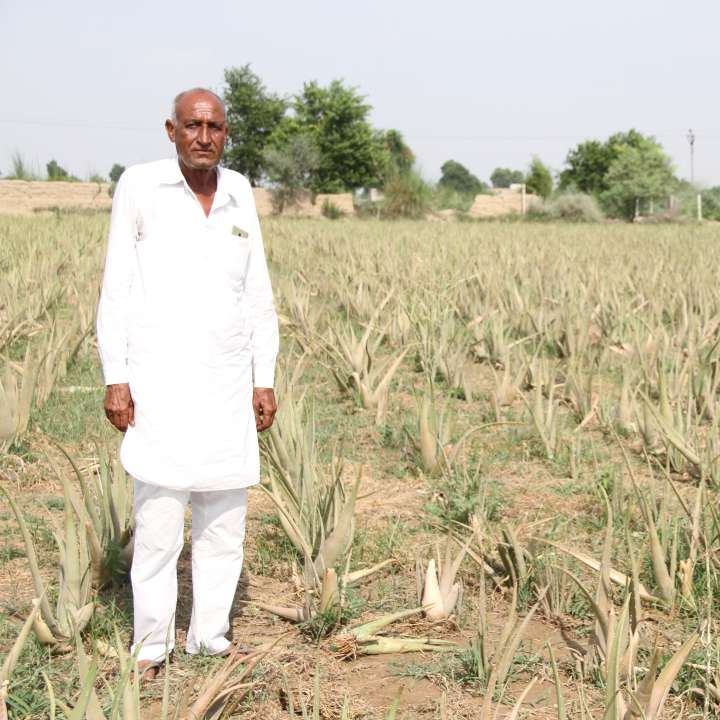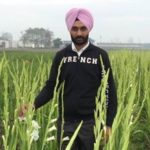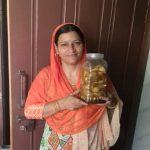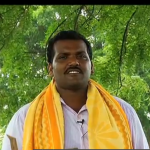How This Farmer Made Farming a Real Profitable Venture with Sustainable Agriculture Practices
Well, farming is a profession by thinking of which everyone imagines a tough life where the farmer has to work for hours under the scorching sun or pouring rain. But you will be quite surprised to know that Gurmail Singh finds his peace and satisfaction of life in Organic Farming.
Gurmail Singh, 68, started farming in 2000 and has been going steady ever since. But before organic farming, he opted his hand on multiple professions of Motor Mechanic, Electrician, and he also learned the work of fabrication and welding, but none of the jobs suited him well and provided him a sense of fulfilment and happiness.
In 2000, when his ancestral land was getting distributed among him and his other two brothers, at that time, he also received one-third part of the property i.e. 6 acres land. Thinking of getting settled with the farming he left his job again as an electrician and began with conventional farming practices of wheat and paddy. Gurmail Singh did everything in his field of whatever he was capable of, with full dedication, but the yield was never satisfying. Fulfilling the input cost of conventional farming (chemical) practices till 2007, he was so badly submerged in the loan debts that it was almost impossible for him to come out of it. At last, he was disappointed with the farming.
But after going under the spiritual enlightenment – a Sikh ritual process of Amrit Sanchar (Amrit Chhakna) in 2007, his perception of the farming was totally changed. He decided to start organic farming on 1 acres of land and slowly its expansion in throughout the acreage. Finding of Gurmail Singh’s intention of organic farming his whole family boycotted him and he started living alone.
Adopting the path of organic farming on a land where chemical farming has been practiced ever since is a very difficult task. As a result, the yield reduced, but Gurmail Singh’s intentions for organic farming were as strong as a mighty mountain.
Watching Subhash Palekar’s video helped him a lot in the beginning, and after that in 2009, he joined multiple organizations like Kheti Virasat Mission, Nabha Foundation, and NITTTR, which educated him with the best suitable results and marketing approach to go organic. Gurmail Singh attended many events and programmes on the national level which made him aware that organic farming practices globally. Gradually with the time yield also got better and he also got the opportunity of selling his produce at a good platform. With the help of NITTTR, in 2014, Gurmail Singh got his own stall in the Chandigarh vegetable market where he can sell his produce on every Saturday. In 2015, with the co-operation of Markfed, he got another opportunity to sell his produce.
“With the time, I won my family support back and they were happy with my way of farming. In 2010, my son also joined me in my farming venture and from that day onward he is with me at every step of my farming life.”
He sells more than 20 harvested crops of his farm which includes Peas, Sugarcane, Bajra, Sorghum, Mustard, Potatoes, Green Grams, Pigeon Pea, Maize, Garlic, Onion, Coriander and much more. Other than cultivation, Gurmail Singh also started processing food processing after taking Bakery Training for 1 month from Punjab Agriculture University.
Gurmail Singh not only processes his own produce but also help other group members of Nabha Foundation by processing their produce. Flour, Multigrain Flour, Pinniyaan (Indian sweet dish), Sarson Saag and Makki Roti are some of his processed food items which he sells along with the vegetables.
When it comes to marketing, it had always been a smooth thing for Gurmail Singh, because of his determination, hard work, and well-known personality among the officials and organization members. Currently, he is living with his family in a village of Nabha, where with the help of 4-5 workers he manages all the labour work at the farm, and for processing, he employees 1-2 workers according to the need.
In future, Gurmail Singh is planning to form a new group where all the members will do organic farming, processing, and marketing.
“Farmers has to understand that quality matters, not quantity, the day when they will understand this thing, at that day all the problems of yield, marketing, and other issues will get resolved. And today farmer should focus on demand and supply rather than growing conventional crops aimlessly.”
In the beginning, there were many problems that Gurmail Singh faced, moreover, his family also abandoned him, people used to call him mad for adopting organic, but the desire to do something different has made him achieve the present success in his life. He is one of the modest people for whom award or appreciation never mattered, for him his yield is the only award for his work.










